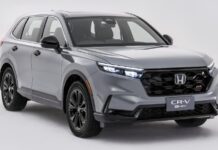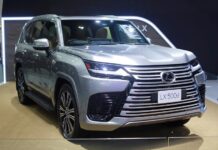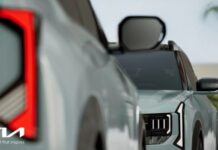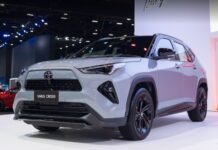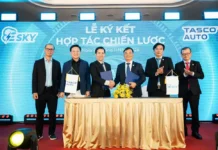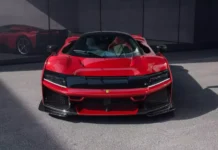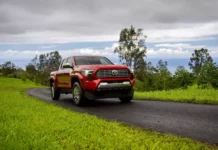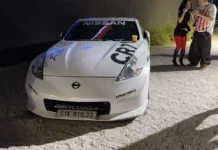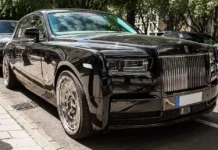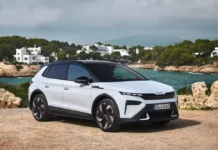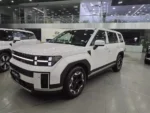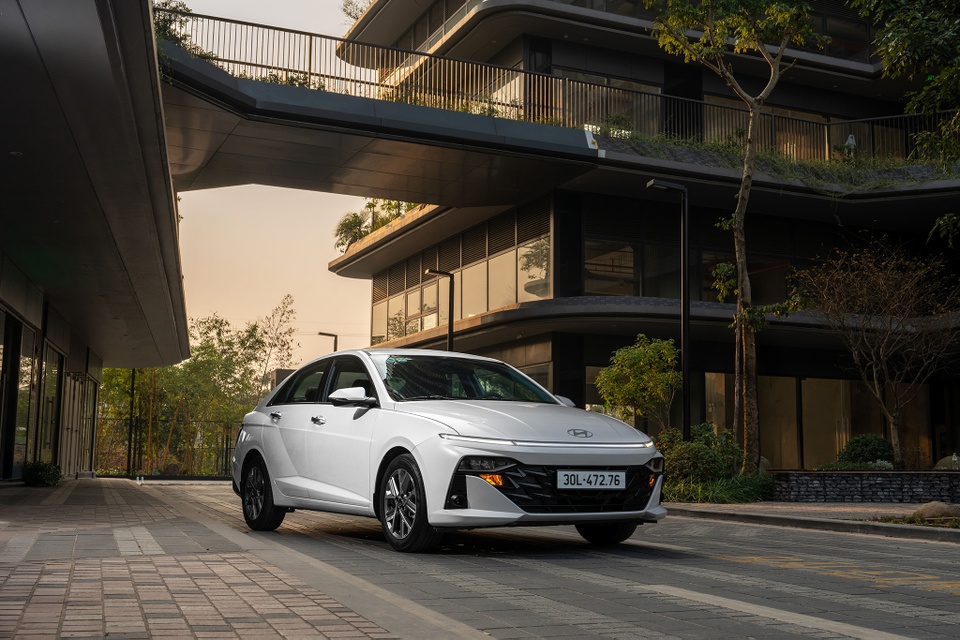
|
The Vietnamese auto market has a limited presence of South Korean car brands. Hyundai remains the flagship of the South Korean automotive industry, alongside its sole compatriot, Kia.
Not only are South Korean cars underrepresented, but they are also going through a challenging period in Vietnam. The emergence of new competitors and the presence of rivals beyond Japanese brands could be factors contributing to the less favorable sales performance of South Korean cars.
A Growing Imbalance
According to reports from the Vietnam Automobile Manufacturers’ Association (VAMA) and TC Motor, as of the end of May, the total sales of South Korean passenger car brands in Vietnam reached 25,341 units, comprising 15,225 Hyundai vehicles and 10,116 Kia cars.
On the other hand, the group of six Japanese automobile brands, including Toyota, Mitsubishi, Suzuki, Isuzu, Mazda, and Honda, collectively sold 58,118 units. Thus, the total sales of South Korean cars in Vietnam during the first five months were equivalent to approximately 43.6% of the total sales of Japanese cars.
| The sales balance between South Korean and Japanese cars is increasingly skewed. | ||
| Comparison of sales performance between South Korean and Japanese car groups in Vietnam for the first five months (Data source: VAMA, TC Motor) | ||
| Label | Japanese Car Group | South Korean Car Group |
| 58,118 units | 25,341 units |
Looking back at the first five months of 2024, VAMA’s report showed that Vietnamese consumers purchased 26,291 South Korean cars, while the total sales of Japanese cars stood at 51,470 units. During this period, the total sales of South Korean cars were roughly 51.1% of the total sales of Japanese cars.
For the full year of 2024, this ratio reached 52.4%. Prior to that, during 2022-2023, reports from VAMA and TC Motor indicated that the sales of South Korean cars in Vietnam typically accounted for about 63-64% of the combined sales of Japanese brands.
Overall, recent developments suggest that the sales balance between South Korean car brands, including Hyundai and Kia, and Japanese brands is becoming increasingly lopsided.
Notably, during the early months of 2025, both Hyundai and Kia experienced consecutive sales declines in three consecutive reporting periods, from March to May. The list of the top 10 best-selling cars in Vietnam for May (including electric cars from VinFast) completely excluded South Korean cars, while the Kia Morning was named the slowest-selling car in this reporting period, with only four units sold.
Beyond the Japanese Competition
Hyundai’s business performance in Vietnam is actually better than it was during the first five months of 2024. The tilting sales balance toward Japanese brands is partly due to Kia’s decline and partly due to the improved sales of Toyota, Mitsubishi, Mazda, Honda, and Isuzu.
Additionally, the Vietnamese car market has become significantly more crowded nowadays. Gone are the days of the duopoly between South Korean and Japanese brands, as the market for mainstream cars in Vietnam now includes domestic brand VinFast alongside a host of Chinese automakers.
|
|
|
The Vietnamese car market is becoming increasingly crowded with the entry of new brands. Photo: Phúc Hậu, Vĩnh Phúc. |
Among these new entrants, VinFast has demonstrated strong sales performance with its two flagship models, VF 3 and VF 5. Last year, the Vietnamese electric carmaker sold approximately 87,000 vehicles, leading the entire market and outpacing its closest competitor by over 30,000 units.
While the Vietnamese car market still offers significant untapped potential, the presence of numerous new brands, including VinFast and Chinese automakers, has inevitably impacted the market share of both South Korean and Japanese brands in the mainstream segment.
For instance, the Hyundai Grand i10, once one of the best-selling models of the brand and a leader in the affordable A-segment, has witnessed a decline in sales recently. The introduction of a range of urban electric cars, such as the VF 3, which is priced lower, is believed to be a contributing factor.
In the A-SUV segment, the Kia Sonet used to be a cash cow for the South Korean brand, dominating the segment for an extended period due to its superior sales over competitors like the Toyota Raize and, later, the Hyundai Venue.
However, the arrival of the VinFast VF 5 and the impact of the latest price adjustments for the upgraded model have led to a decrease in the sales of the Kia Sonet, despite it still outperforming the Raize and Venue.
| Kia Sonet and Hyundai Grand i10 Lose Steam | |||
| Sales performance of the Hyundai Grand i10 and Kia Sonet from 2023 to 2025 | |||
| Label | 2023 | 2024 | First Five Months of 2025 |
| Kia Sonet | 11,366 units | 7,313 units | 2,070 units |
| Hyundai Grand i10 | 7,944 units | 5,831 units | 1,403 units |
In the B-SUV segment, the Hyundai Creta surpassed the Japanese Toyota Corolla Cross to become the best-selling car in Vietnam in 2023.
However, with the subsequent introductions of the Mitsubishi Xforce, Toyota Yaris Cross, and more recently, the VinFast VF 6, Lynk & Co 06, Omoda C5, and Geely Coolray, the urban SUV segment has become highly competitive, and the sales of the Hyundai Creta have also taken a hit.
Embracing Electrification?
Among South Korean cars in Vietnam, the Hyundai Ioniq 5 is the only purely electric model, while the Kia Sorento and Kia Carnival offer HEV/PHEV options. The Hyundai Santa Fe used to have a hybrid version, but it was discontinued with the launch of the newest generation.
In contrast, Toyota, a Japanese automaker, has been at the forefront of the electrification trend by offering hybrid versions across its lineup. Honda has also embraced electrification by introducing the Civic e:HEV RS and HR-V e:HEV RS, building upon the hybrid variant of the Honda CR-V.
Suzuki has demonstrated its commitment to electrifying its product lineup by discontinuing the Ertiga and XL7 to make way for the Ertiga Hybrid and XL7 Hybrid. Additionally, the Suzuki Swift, a hatchback in the B-segment, is set to re-enter the Vietnamese market with a new look and a hybrid powertrain.
|
|
|
Japanese automakers introduce a range of hybrid vehicles in Vietnam. Photo: Phúc Hậu. |
Amid the current trend toward electrification, the lack of pure electric and hybrid options in the portfolios of Hyundai and Kia could diminish their competitiveness. The Hyundai Tucson and Kia Sportage, which offer hybrid variants in international markets, are highly anticipated to be introduced in Vietnam soon.
Electric vehicles seem to be a more challenging proposition. The Hyundai Ioniq 5 has not been a significant success in Vietnam, diminishing the likelihood of the introduction of other electric models like the Hyundai Kona EV, Kia EV5, or Kia Niro EV.
The underdeveloped public charging infrastructure in Vietnam, excluding the V-GREEN network exclusively serving VinFast electric cars, also poses a significant obstacle.
|
|
|
The prospect of bringing South Korean electric cars to Vietnam is generally low. Photo: Kia. |
Overall, South Korean cars in Vietnam are facing considerable pressure. Declining sales and a crowded market with new competitors have impacted the position of South Korean automobiles.
Nevertheless, South Korean cars are expected to maintain their presence in Vietnam, partly due to the existing base of loyal customers. The pie, however, has gotten bigger with new entrants vying for a share.
Recommended Reads for Your Journey
The Automotive section presents a selection of captivating books with diverse themes. During your travels, these books can be wonderful companions, offering moments of relaxation and enrichment.
K5 and Carnival: Can These Models Save Kia’s Slumping Sales Amid the Electric Vehicle Revolution?
Kia is finding an unlikely savior in gas-powered cars, which are keeping the company afloat amid its electric vehicle woes. The South Korean automaker has long struggled to gain traction in the EV market, and these fuel-driven vehicles are proving to be a lifeline, ensuring the company maintains its impressive net profit margins.
The Hyundai Stargazer X 2026: A Bold Revelation Unveiled.
The Hyundai Stargazer X 2026 is set to captivate automotive enthusiasts beyond Indonesia as it makes its way to other Southeast Asian markets, including Vietnam. With its sleek design and innovative features, the Stargazer X is poised to become a standout choice for drivers in the region. Stay tuned as we bring you more updates on this exciting vehicle’s journey across Southeast Asia.

